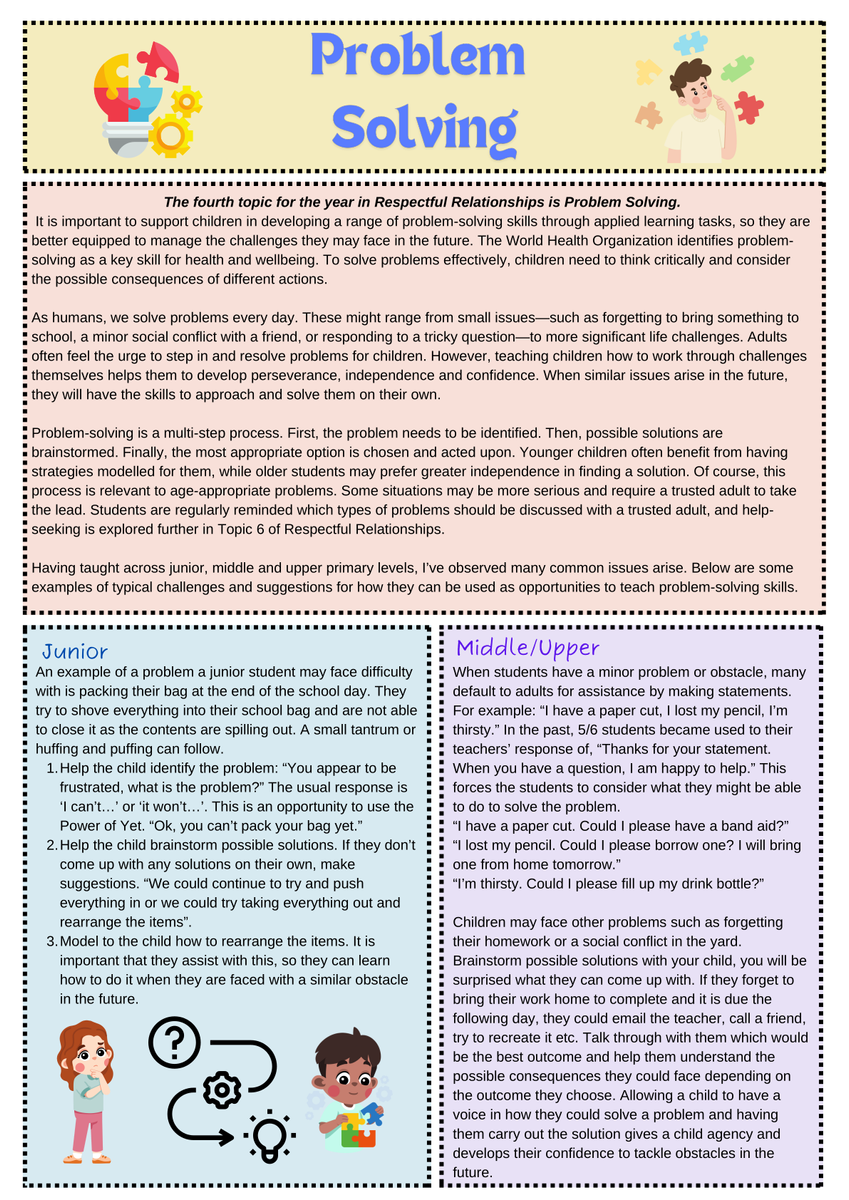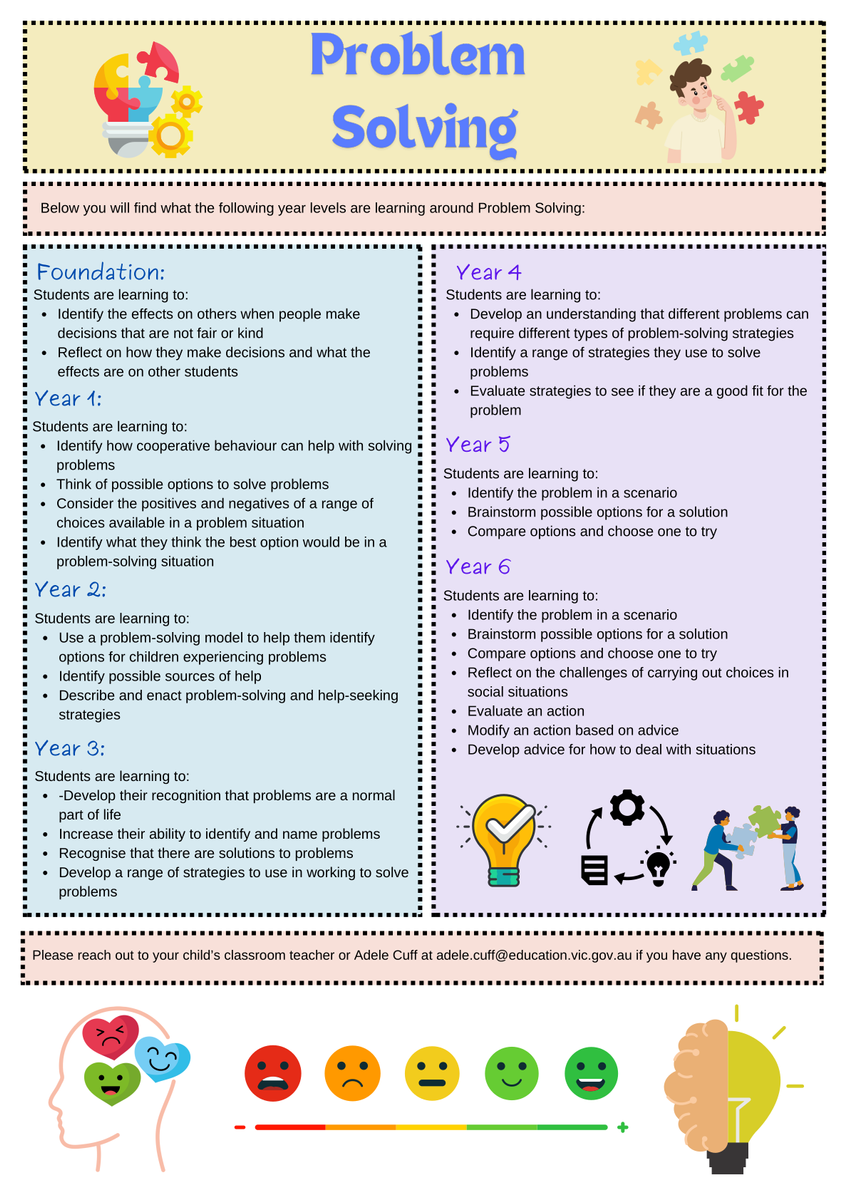Family Wellbeing

🌱 From the Wellbeing Team: Resilience Begins with the Everyday
When we think of building resilience as a life skill in children, we often picture big moments - tough losses, major setbacks, or personal challenges. But resilience doesn’t begin in those big moments. It begins in the quiet, everyday difficulties: a forgotten homework sheet, a friendship that feels distant, or a confusing maths task. It begins when a child stares down at a problem and, even with shaky confidence, chooses to try.
As a Counsellor, I see how these small but significant experiences shape a child’s sense of self. Every time a student is supported - not rescued - in working through a challenge, their belief in their own ability grows. And yet, when a child doesn’t feel safe to try, when their worries overwhelm their problem-solving skills, or when they rely too heavily on adults to ‘fix’ things, we notice something else: hesitation, avoidance, self-doubt.
This is why emotional regulation and problem-solving go hand in hand. A child who is emotionally dysregulated often cannot access the part of their brain that allows for flexible thinking or thoughtful decision-making. Teaching children how to pause, name their emotions, and ground themselves is foundational to building problem-solving capacity. Only then can we guide them through the cognitive process of evaluating options, predicting outcomes, and learning from the experience - win or lose. Having said that, it is also important to keep in mind that all children are different, and so are their needs. We know that some children, particularly those who are neurodiverse or have anxiety, depression, grief or trauma, may need more time, more support, and more compassion as they develop these skills. For them, resilience is not simply about “bouncing back” - it’s about not giving up when the world feels too fast, too hard, or too confusing. It’s about teaching them that struggling doesn’t mean failing; it means growing.
At school, we embed problem-solving into our conversations, classroom practices, and social skill sessions. At home, you can support this by noticing when your child is stuck and gently coaching rather than directing. A question like “What do you think you could try?” or “What has helped before when you’ve felt like this?” can create space for your child to reflect, regulate, and move forward with your encouragement beside them. In counselling, we often see how a child’s emotional response can cloud their ability to think clearly about a problem. For example, a student might come in feeling overwhelmed because a friend didn’t sit with them at lunch. Initially, their reaction might be “They don’t like me anymore” or “No one wants to be my friend.” In these moments, we slow down, help them name how they’re feeling—perhaps sad, confused, or left out—and gently support them to think through what might have happened, what else could be true, and what they could do next. By encouraging curiosity over assumptions, we guide the child to brainstorm possible solutions: “Could you ask your friend about it tomorrow?” or “Is there someone else you feel comfortable sitting with if that happens again?” Over time, these small moments help build emotional resilience and social confidence.
Together, we can create environments - at school and at home - where children are not protected from every challenge but are lovingly supported through them. Where they learn not only how to solve problems, but that they can. This is where true resilience begins.
Riva Dhingra, OPS Student Counsellor


